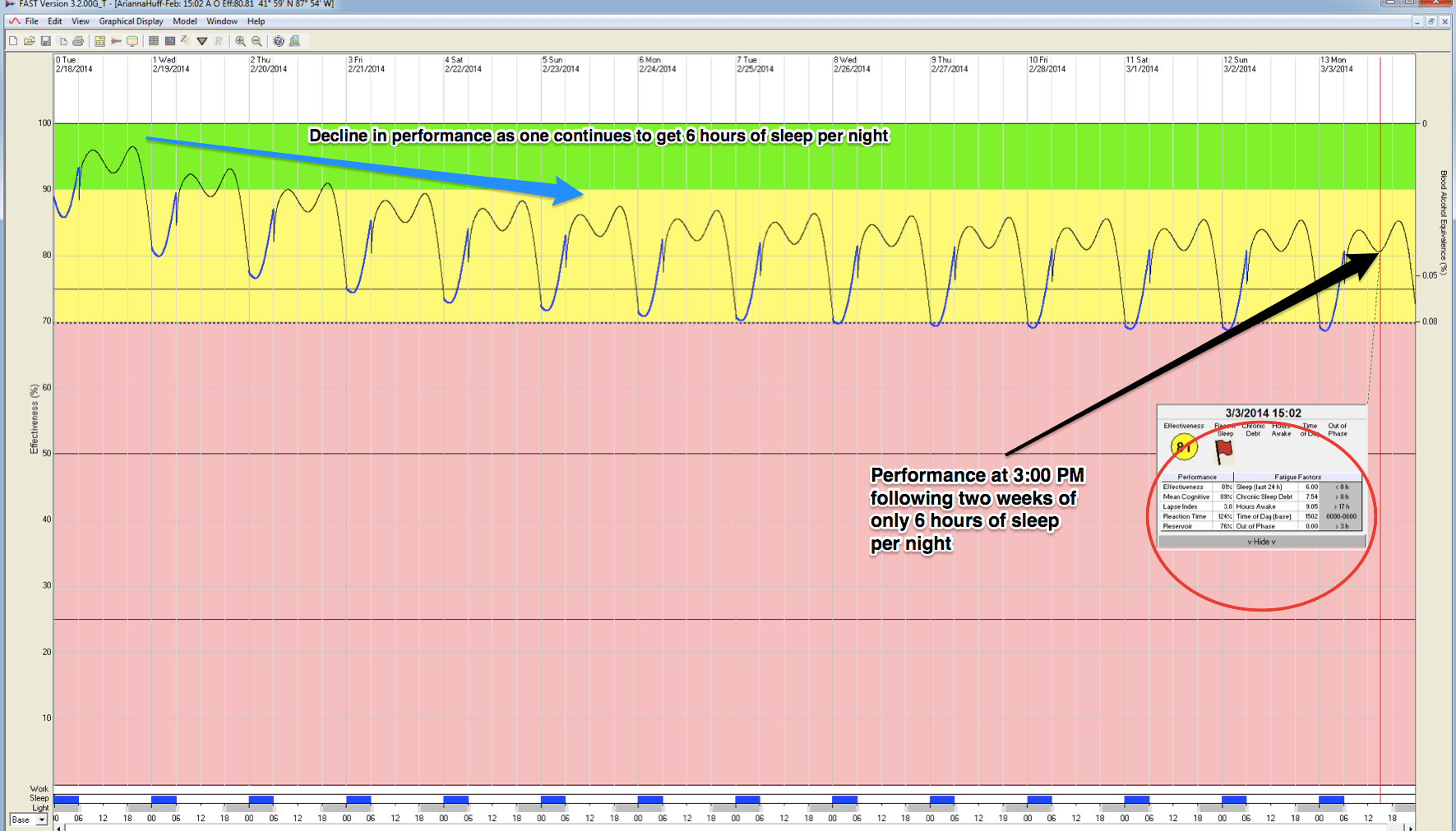Former Health and Human Resources Secretary, Donna Shalala, recently told the Huffington Post that during the Clinton administration, she advised her employees to get more sleep, declaring: “President Clinton hired us for our judgment, not our stamina”.
Shalala, now President of the University of Miami, knew the value of consistent quality sleep on performance and actively ‘discouraged sleep deprivation among staff’ according to the Huffington Post.
With a multitude of studies demonstrating that sleep deprivation can cumulate to the point where workers are operating at levels equivalent to being legally impaired, it’s encouraging to see a high level political figure publicly state that sleep is essential.
A Harvard Business Review journal titled Sleep Deficit: The Performance Killer, also addresses the issue of executives ‘burning the candle at both ends’ and reminds us of the cognitive effects of sleep deprivation: “Stay awake longer than 18 consecutive hours, and your reaction speed, short-term and long-term memory, ability to focus, decision-making capacity, math processing, cognitive speed, and spatial orientation all start to suffer.” Regardless of this, the piece claims, “frenzied corporate cultures still confuse sleeplessness with vitality and high performance.”
In an interview with the Harvard Business Review, Dr. Charles A. Czeisler, the Baldino Professor of Sleep Medicine at Harvard Medical School shares his advice to corporate leaders and observes that they have a responsibility to take sleeplessness seriously: “If you want to raise performance—both your own and your organization’s—you need to pay attention to this fundamental biological issue”.
Czeisler suggests that companies should implement policies, much like they have in place for other health and safety matters, that address sleep and fatigue. Allowing extra time for executives to adjust to time zones when travelling for business, or not permitting employees to drive after taking a red-eye flight are just a sampling of what corporations should consider in writing these policies. “Such a policy requires some good schedule planning,” Czeisler says, “but the time spend making adjustments will be worth it, for the traveler will be more functional before going into that important meeting.”
Shalala’s orders to her staff may not have been part of a formal policy but she was certainly ahead of where most corporations are, even more than a decade later, in terms of considering the importance of sleep on employee health and effectiveness.



